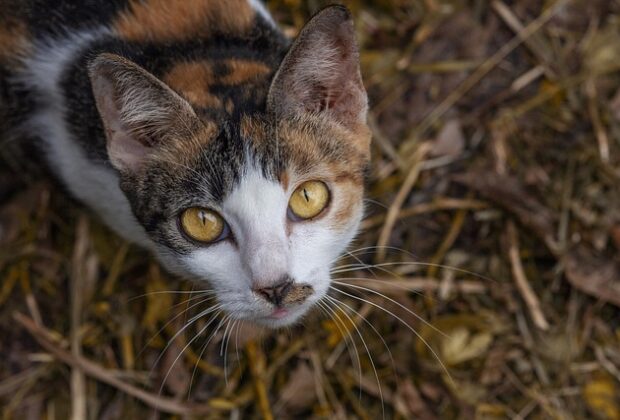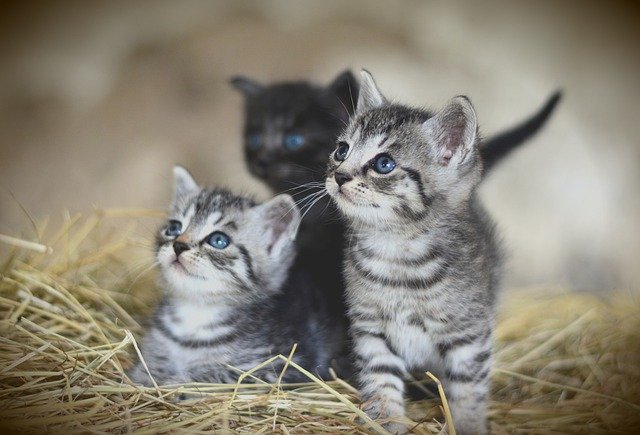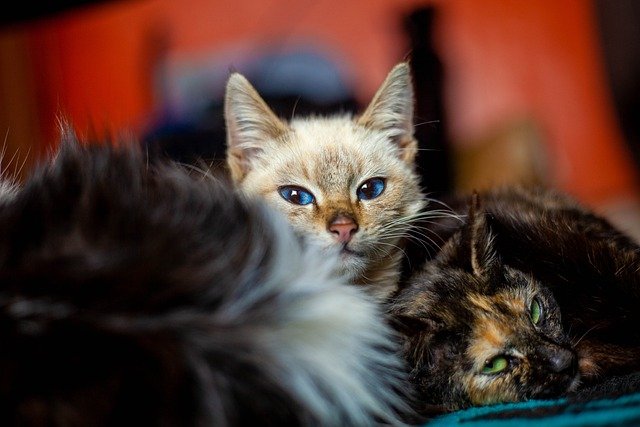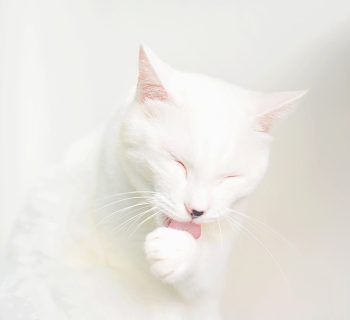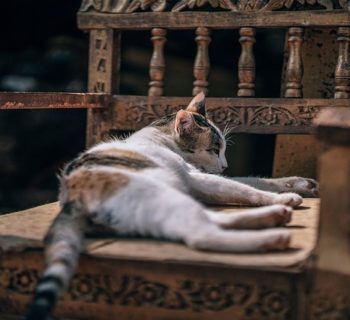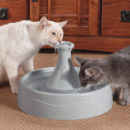When do kittens start using the litter box? Is my kitten old enough to use a litter box? If you’re asking any of these questions, it is likely because you have a yet-to-be-litter trained feline, and you want to get it started with litter training.
Litter box use should be one of the first things they learn as it is necessary for proper toileting habits. So, when is the right time to litter-train your kitten? We’ll find out in this article.
Table of Contents
When Should My Kitten Get a Litter Box?
Every cat owner would agree that good toilet habits are crucial for the indoor cat’s life. The last thing any cat owner wants after a long hard day, or any day for that matter, is to have to clean up a dirty carpet. It can be an arduous job to repeatedly clean up a soiled rug no matter how much you love your feline.
That said, unless your cat was separated from its mother immediately after birth, you want to start litter training as soon as they arrive at your home. Generally, though, kittens are usually separated around the 10th – 12th week.
Why wait that long?
In the first few weeks of their lives, our felines cannot eliminate waste without help; urine or stools. To aid the process, mother cats massage the area with their tongue. After the first few weeks and the kitten starts to gain control of their elimination, they watch and imitate the mother's litter habits. It can happen around their 4th to 5th week. In their mother's absence, you will have to teach your kitten how to use a litter box. Thankfully, cats take to litter boxes pretty quickly.
How to Litter Train a Kitten
It would be best to start litter-training cats around their 4th to 5th week of life. While many cats tend to imitate their mothers and learn to use a litter box, some may not. However, you should still train them.
You can start by gently picking them up and placing them inside the litter box after their meals at around this age range. Repeat this after every meal, and soon enough, your kitten will come to understand that it is required to eliminate only in the litter box, and they’ll pick up the habit seamlessly as they are also naturally neat animals.
Another thing you’ll notice felines do naturally during the litter-training lessons is waste covering. This behavior is instinctual and, therefore, will come naturally to all of them. Once they understand that the litter box can be a comfortable place for them, this instinct kicks in, and they’ll take time after eliminating to cover their waste.
Choosing a Litter Box for Your Kitten
While many kittens will know how to use a large litter box from imitating their mothers, it is still essential that they get something that they can step into with no problem. You want to opt for one that your kitten can walk/turn around in freely. However, you can use an old pan or a paper box for training purposes for really tiny kittens.
While cats are private animals that enjoy their space, a covered litter box may not be a good idea at the kitten stage. You want to watch your kitten and observe how it uses the litter box.
You can introduce it to a covered litter box when you’re confident that it can use the box with no problem. If you notice that your cat prefers the open litter box (felines can get the close/suffocating feeling, too), you should consider getting an open box.
Getting a Litter Box for Your Kitten: Types of Litter
As you may have already observed, our felines are neat animals, and something as “minor” as the litter type or condition can influence how well your kitten takes to its litter training. A litter box should be as comfortable as possible, so your pet looks forward to using it. The type of litter contained in the litter box can influence this decision.
How is the texture of the litter? Is it scoopable or unscoopable clay litter? Which does your cat prefer? To know this, you may first have to try out the different litter types and then settle for the one it finds most comfortable.
You also want to opt for unscented litter or the types without heavy fragrances as the feline olfactory system is highly sensitive, and perfumes contained in those litter types can be upsetting to most cats.
Because cats can sometimes step on their litter and spread it outside their litter box, especially if not using a non-tracking litter, you should consider placing a soft, comfortable mat to catch these litter particles.
We have covered the best cat litter for kittens in this article.
Positioning a Litter Box
Cats are highly reserved and private pets. But then, while you want to create a private space for them, it should still be in an accessible area in the home. Avoid closed, tight spaces and also avoid placing it near loud or potentially dangerous home appliances.
A litter box should also not be placed close to the cat’s food or drinking bowls or even close to its sleeping areas. A cat or any other house should not have to eliminate their waste close to their eating or sleeping area. You should also ensure that the surrounding area is always kept clean. And unless it is a self-cleaning litter, you should scoop out the litter at least once a day. Clean up stray litter particles as soon as possible to keep the area fresh-smelling and encourage your feline to use it.
Unless your cat seems okay with scented litter, you should keep the litter box clean and neutral smelling at all times. It helps keep the box inviting to the pet every time they need to use it.
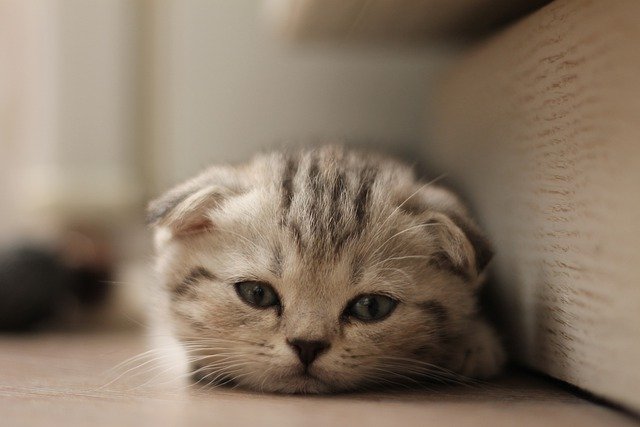
Problems and Solutions to Expect in Cat Litter Training
As said earlier, most cats will take to the litter box quickly. For some, it may take longer, but eventually, almost all kittens learn how to use a litter box. If you notice your kitten prefers certain areas for elimination, you should consider moving the litter boxes to these areas.
If your kitten seems to avoid its litter box area, check to ensure nothing in the area is putting it off. Is the litter box area clean? Is it noise or distraction-free? How is the smell? Is the litter too strong-smelling or scented for it? Correct any problem you observe, and your kitten will adjust accordingly.
Litter-tasting is a habit you may observe in your kitten. Like very young children, our kittens explore and gather information about their surroundings by tasting/eating things they find around.
You may find your kitten tasting the clumping litter soil, and unless you’re there to stop it, it may swallow it and have to deal with the harmful clumps that would form in its digestive system. If you notice this habit in your cat, you should consider using a different cat litter as you’ll not be there every time to stop it from ingesting the litter.
However, you should never reprimand your kitten harshly for accidents. Be consistent and firm with it, though, and correct on the spot.
What If My Kitten Is Already Litter-Trained?
Should I retrain an already trained kitten? Yes, you should. Even when your kitten has been adequately litter-trained at the breeder’s, you should still take some time to retrain it. For one, unless you’re continuing with the same litter, you should retrain it to get used to the new litter.
Also, while already litter-trained, your new kitten is likely already used to the litter box positions in its old home, and unless you teach it to use the new space, it can affect its littering habits. Training does not end at any particular age. Your kitten may still need refresher training and positive reinforcement, especially when it’s still getting used to the new home and the new litter box positions.
When Should a Kitten Get a Litter Box: Conclusion
Feline training can be a reasonably straightforward process. Cats, generally being neat pets, adapt quickly to litter box use, and yours will most likely be no different. If you encounter problems when litter-training your kitten, you should approach these problems calmly. Try not to get stressed or stress your kitten over litter accidents. It will only worsen the situation and leave you frustrated with it.
Do your part by ensuring that the litter is a safe and comfortable place for your kitten and correct undesired behaviors firmly but affectionately. If you have multiple kittens, you should ensure they each have one litter box as kittens do not enjoy sharing their personal space or, worse; sharing a toilet with other kittens. If possible, have an extra litter box lying around just in case.
If, after everything, you continue to have trouble with your feline’s littering habits, you should talk to a vet or an expert cat handler to rule out all possible underlying health issues that could be causing the poor elimination habits.
About the Author
Kirsten Heggarty
Kirsten created The Pet Handbook with the aim of sharing her knowledge about pets, pet food, healthy habits, and more. All of her advice is based on years of her own experience with her pets, and feedback that she has received from grateful readers about her tips. If you want to know more please read the About Me page.

